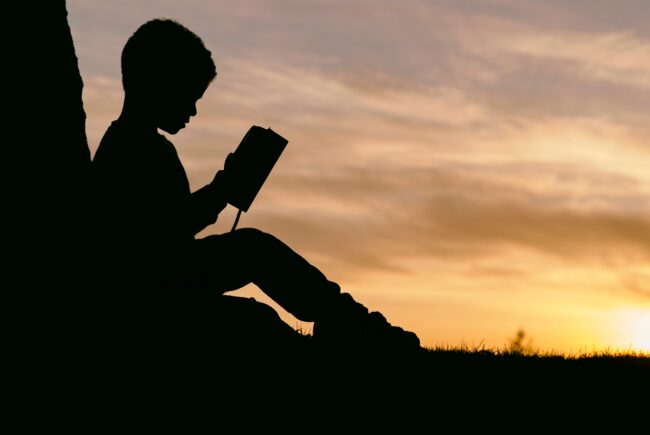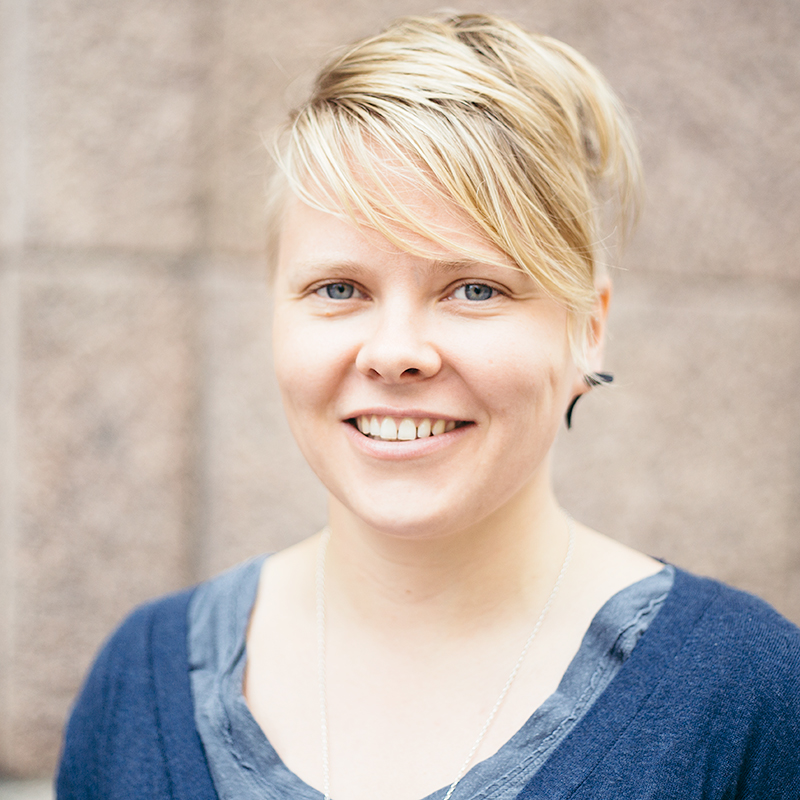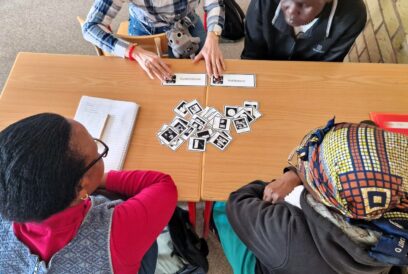

“Basic education for adults in Somalia is not very structured, neither is it very popular. Mainly women take part in the evening schools where the teaching is mostly volunteer based”, says the Minister for Education and higher Education of Somalia, Abdirahman Dahir Osman. / Photo: Unsplash / Aaron Burden.
“Basic education for adults in Somalia is not very structured, neither is it very popular. Mainly women take part in the evening schools where the teaching is mostly volunteer based”, says the Minister for Education and higher Education of Somalia, Abdirahman Dahir Osman. / Photo: Unsplash / Aaron Burden.
How to get the basic education for everyone from school children to adult learners in a war torn society with little resources at hand? This is a challenge Ministry for Education and higher Education in Somalia is dealing with.
In Somalia, a country with one of the world’s lowest education enrolment rates, two thirds of school age children are out of school. According to UNICEF statistics 40 per cent of these are girls and only 18 per cent of children in rural households are in school.
A generation of children have missed the opportunity for basic education due to two decades of war. At policy level, since 2011 there has been a free public education up to secondary school in Somaliland. But due to the lack of resources the law is not implemented everywhere. There has been great difficulty in retaining teachers on the salaries the government can afford to pay. On the other hand, in areas where parents are required to pay for their children’s education, poverty remains the main reason they give for not sending their children to school.
To tackle this, the Somalian government together with the non-governmental organisations have established a compressed basic schooling for children, called the Accelerated Llearning Programme (ALP).
“We condense the primary school from normal the 8 years to 4 years for these children. This means that we choose the essential subjects from the curriculum, those that are really needed,” says the Minister for Education and Higher Education of Somalia, Abdirahman Dahir Osman.
Information about a new school in the area is greeted with great delight and according to Dahir Osman it is never difficult to get the children to school since they are very eager. The challenge is rather that the schools become overcrowded.
“When we establish a school somewhere where the missing rate is high, the average size of a class can be 70 to 80.”
The programme aims to integrate the children into normal school later on. They will continue into secondary school, if they do well on the leaving exams at primary level. However, this is not the standard.
“Many of the children drop out after 4 years of primary school. At that point they have some level of literacy and numeracy and understanding of essential issues and elements under their sleeve. These children then go to find work”, Dahir Osman says.
Despite the policy level compulsory school, there are not enough secondary schools in the country for all the children, so some of the dropping out is due to competition for school places. It is especially the girls who are transiting less from primary school to secondary school.

Abdirahman Dahir Osman, Minister for Education and higher Education of Somalia.
Adult education lacks structure
The last countrywide UNICEF survey from 2006 showed that only 25 per cent of women aged 15 to 24 were literate. The low availability of sanitation facilities, the lack of female teachers, safety concerns and social norms favouring boys’ education were cited as factors inhibiting parents from enrolling their daughters in school.
For adults there is some basic education available at primary school level. This curriculum is especially targeted at adults, consisting of literacy and numeracy skills with some environment studies as well.
“Basic education for adults is not very structured, neither is it very popular. Mainly women take part in the evening schools where the teaching is mostly volunteer based. Sometimes we try to pay the teachers and sometimes the community shares the cost”, says Dahir Osman.
Although the resources and structures for education in Somalia are scant, Dahir Osman emphasises the importance of it at all age levels.
“Education is vital and will help people in many different ways. Besides re-educating the people in a war-torn society, it helps socially by giving people the possibility to get together and interact. We should learn from the European education systems. They are the most advanced in the world, and they also have the means, resources and knowledge.”
Author







